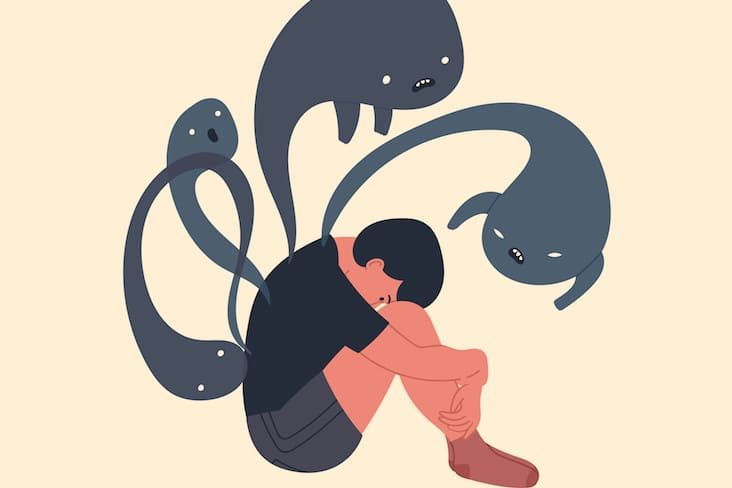我掌握自己的治療計劃 | I Am in Charge of My Treatment Plan
MHACC 雙語部落格 Bilingual Blog
Scroll down for the English Version ⬇️
作者:Tammy Ozolins
原文出處:NAMI 部落格
https://www.nami.org/medications/i-am-in-charge-of-my-treatment-plan/
發佈日期:2021年8月9日
當我一開始接受雙相情感障礙的治療時,我會坐在精神科醫師辦公室裡,靜靜聆聽、點頭附和,偶爾插入一兩句「嗯」或「是的」。我認為醫生擁有所有的答案,我的意見並不重要。畢竟,我又沒有醫學學位。
後來我意識到這樣的想法有很大漏洞——而且我逐漸明白,要真正康復,我的參與是不可或缺的。
一開始,我在治療中扮演被動角色
我與精神科醫師見了好幾次面,但即使我覺得藥物效果不佳,還出現了許多副作用(例如顫抖、體重增加、噁心、失眠等),我依然一聲不吭。我終於到了極限,乾脆停止服藥。
我常覺得醫生根本不關心我的需要和感受。每次看診,我說話的時間不過幾分鐘,對方幾乎沒有什麼回應。然後就只是拿張處方箋,就這樣被打發了。我感覺自己就像在熟食店排隊的一個號碼,被叫到後處理完就結束了——我像是透明的。這讓我既憤怒又挫敗;我是否只是個累贅?我是否不值得被關心?如果連我的醫師都不在意我的康復,那我自己又何必在意?
我的諮商師鼓勵我掌握主導權
與那位精神科醫師冷冰冰的互動不同,我在心理諮商中有非常正面的經驗。我的諮商師叫Eleanor,她讓我聯想到祖母——總是讓人感到安心,也總是讓我覺得被關心。她會和我一起笑,在我需要時給我一個擁抱。我們很快就建立了連結,我總是期待與她見面。
我在多次會談中向Eleanor描述與精神科醫師的經歷。有次我說自己在諮詢時感到不被重視、不被傾聽,也擔心藥物沒有效果。
她說:「那妳為什麼要忍受這些?」
我回答:「什麼意思?醫生才是專家啊。」
但Eleanor不同意。她告訴我,真正該掌握自己身體的是我,而不是醫生——我才是最了解自己需求的人。
我一開始聽到這個說法非常震驚,甚至有些害怕。我怕如果開口說出來,醫生會不高興,甚至不再讓我拿藥。但儘管有這些恐懼和不確定,我還是感到鬆了一口氣。因為終於有人肯定了我的感受,告訴我:我有權為自己發聲。
我終於開始做出一些改變
第二次因躁症發作而住院後,我才真正開始進入復原的過程——我也終於明白Eleanor說的是對的。我知道自己服的藥不對,也知道我不敢向醫生表達。是時候掌控自己的治療了。我第一步就是換一位精神科醫師。
我一直都害怕改變。重新開始、重新講述自己的故事,讓我感到既緊張又疲憊。但即使一切得從頭來過,這份努力是值得的。我真的很喜歡新醫生,和他相處我能敞開心扉。隨著康復的推進,我越來越清楚:我的成功與否,取決於我是否能掌握自己的治療計劃。
我常用「買衣服」來比喻這件事。買牛仔褲時,我會試穿五六件不同的款式,花好幾個小時在更衣室裡,只為找出最合適的一件。如果我都願意花那麼多時間為衣服挑選合適的款式,那為什麼面對心理健康時,不做出同樣的努力呢?
當然,不斷更換藥物(或更換醫師)是很挫折的,但我學會了要不斷嘗試、不斷為自己發聲,直到找到真正適合的方案。沒有什麼萬靈丹,但我值得為自己找出最好的治療方式。
現在,我是自己的主導者
從今以後,我掌控自己的治療計劃。當我覺得藥物無效,或出現副作用,我會直接表達。我的精神科醫師會傾聽,也會根據需要調整用藥。有一次,我覺得自己已經穩定到可以從每日三次改為兩次,醫師也接受了。我可以放心開口表達,診間不再匆匆結束。我真正感受到被理解、被照顧。
當然,維持復原狀態仍然需要努力。我每天服用兩次情緒穩定劑,每六個月回診一次。有需要時我也會進行個別諮商,並發展出一套自己的因應技巧,例如寫作、閱讀、聽音樂與與朋友談話。我現在甚至協助主持NAMI的支持小組。
最終,我深信自己的康復與成功,都來自於我主動掌控了自己的治療計劃。就像挑到一條合身又讓自己充滿自信的牛仔褲那樣,找到適合自己的治療方案也需要努力——但那絕對值得。
Tammy Ozolins 目前在維吉尼亞州里奇蒙從事教育工作。她相信,許多與心理疾病共處的人能從她的旅程中產生共鳴,一起對抗圍繞心理疾病的汙名。
Written by: Tammy Ozolins
Original Source from NAMI Blog: https://www.nami.org/medications/i-am-in-charge-of-my-treatment-plan/
August 9 2021
When I was first receiving treatment for bipolar disorder, I would sit in the psychiatrist’s office and listen and nod, occasionally adding an “um” or a “yes” to the conversation. I figured that my psychiatrist had all the answers and that my input wasn’t necessary. After all, I didn’t have a medical degree.
Eventually, I saw a flaw in this logic — and I would come to learn that my involvement in my care was essential to my recovery.
At First, I Took a Passive Role in My Treatment
Several sessions with the psychiatrist passed, and I said nothing, even when I felt that the medication wasn’t working, and I was plagued by unpleasant side effects (tremors, weight gain, nausea and trouble sleeping, to name a few). I reached a breaking point and eventually stopped taking the prescribed medication.
Often, I felt that my psychiatrist didn’t care about my needs or concerns. In our visits, I would talk for a few minutes and receive little to no response. Then I would be handed a prescription, and out the door I went. I felt like an order number at a deli counter; my number was called and dealt with — and that was it. I was invisible. This left me feeling angry and defeated; was I just a burden? Was I unworthy of care? If my psychiatrist didn’t invest in my recovery, why should I?
Then, My Therapist Encouraged Me to Take Control
In contrast to my unsatisfying visits to the psychiatrist, I had a wonderful experience in talk therapy with a counselor named Eleanor. She reminded me of a grandmother; she made me feel comfortable, and I always felt like she cared. She laughed with me and gave me a hug when I needed one. We “clicked” immediately, and I always looked forward to seeing her.
In several sessions, I told Eleanor about my visits with the psychiatrist; in one conversation, I described how I felt undervalued and unheard in consultations and how I worried that the medication wasn’t working.
“Well,” she said to me, “Why do you put up with that?”
“What do you mean?” I responded. “The doctor is the expert.”
Eleanor disagreed. She told me that I should be the one in charge of my body, not my doctor — that I am the expert in my own needs.
I was shocked by this notion at first — and then scared. I was afraid that if I spoke up, I would lose my psychiatrist and access to medication. Despite this fear and uncertainty, I was relieved that someone was validating my feelings and telling me I was worthy of advocating for myself.
Finally, I Began to Make Some Changes
After my second hospitalization due to a manic episode, I truly began the process of recovery — and I realized that Eleanor was right. I knew I wasn’t on the right medication, and I was uncomfortable advocating for myself with my doctor. I needed to take control and make a change. I started by finding a new psychiatrist.
I have always found change to be scary. I was nervous about starting over and re-explaining my story. Beginning again felt intimidating and exhausting. In seeing a new doctor, I did have to start from the beginning. But the extra effort was worth it; I really liked the new doctor, and I felt comfortable opening up to him. As my recovery progressed, I began to see that my success depends on me being in charge of my medical treatment.
I find it helpful to think about my care plan like I do about shopping. When I go shopping for clothes, I will try on five or six pairs of jeans and several tops to find the right fit, sometimes spending hours in the dressing room. If I make that time and energy commitment to finding the right fit for clothes, why wouldn’t I do the same for my mental health?
Naturally, taking medication after medication (or even seeing doctor after doctor) can be frustrating, but it’s important to keep trying different options and advocating for myself until I find the right fit. There is no magic solution, but I owe it to myself to find the best possible treatment.
Now, I Am in Charge
Moving forward, I am in control of my treatment plan. I speak up when I feel like the medication is not working or if I experience negative side effects. My psychiatrist listens to me and makes appropriate adjustments when necessary. When I felt that my recovery was far along enough to change my medication regimen from three to two pills a day, he agreed. I can speak openly, and I am never rushed out of the office. I truly feel heard and cared for.
Of course, I must stay vigilant to maintain my recovery. I take a mood stabilizer twice a day and see my psychiatrist every six months. I go to one-on-one counseling when needed, and I have developed several coping skills (including writing, reading, listening to music and talking to friends). I even help run a support group for NAMI.
Ultimately, I owe my recovery and success to taking charge of my treatment plan. Much like finding the perfectly-fitting pair of jeans that make me feel so good, developing the right treatment plan takes some effort — but that effort is well spent.
Tammy Ozolins works in the education field and lives in Richmond, Va. She believes that people living with mental health conditions can relate to her journey and help fight the stigma surrounding mental illness.
Sign up for our Newsletter
訂閱每月簡訊獲得最新資訊
Contact Us












